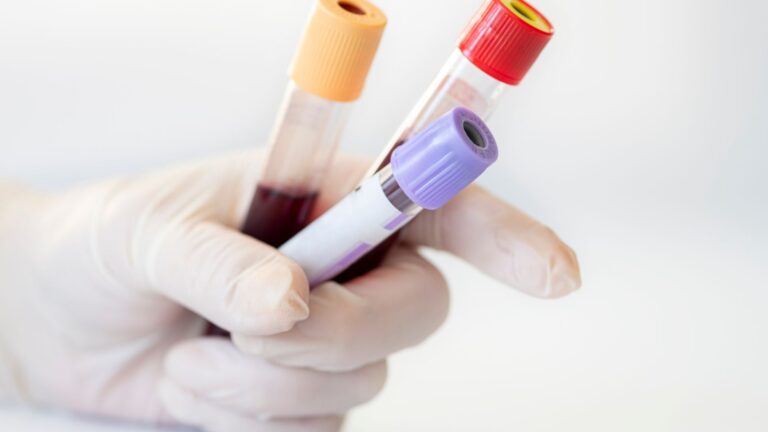Breaking Free from Anxiety: The Unconventional Solution You’ve Overlooked

Introduction: Unshackling from Anxiety
It’s 2:00 a.m. After tossing and turning for the past few hours, you lie awake in bed, pondering what your friends think of you, contemplating your career path, and replaying past mistakes. Waves of self-doubt crash through your body, accelerating your heart and leaving your chest heavy. Every thought seems to multiply into problems rather than generate solutions.
Anxiety deeply affects Americans across every stage of life. The stress of college admissions, job transitions, career advancement, or even family challenges—approximately 32% of Americans reported symptoms of anxiety and depression in 2023. Of this group, 88% ranged from 18-49 years of age, signaling the slippery slope we trail on as we age and place greater pressure on ourselves.
Yet, eliminating these stressors isn’t straightforward—they’re engrained into our lives. So, what if there were a better way? Imagine empowering your mind by boosting neuroplasticity (the ability to change and adapt) and becoming your supportive ally. Enter Ketamine, an innovative and promising solution for revitalizing mental well-being.
Understanding Anxiety
Identifying the type of anxiety you’re experiencing will help you understand the triggers behind your anxiety. Consider these common anxiety disorders:
- Generalized Anxiety Disorder (GAD): Worrying constantly and the inability to control it. This includes dwelling on relationships, health, and safety. 3.1% of Americans are affected by GAD and less than half receive treatment.
- Panic Disorder: Frequent and recurring panic attacks, which are characterized by a sudden rush of fear or discomfort. This results in the inability to control yourself or your emotions, mentally encaged in an uncontrollable emotional response. Up to 11% of Americans experience panic attacks and 2.7% of US adults experience panic disorder at some point in their lives.
- Social Anxiety Disorder (SAD): Deep feelings of fear and uneasiness in situations where one may be scrutinized, judged, or evaluated by others. Everyone has experienced this at least once in their lives, and 7.1% of adult Americans suffer from SAD.
- Obsessive-Compulsive Disorder (OCD): A long-lasting disorder where a person experiences uncontrollable and recurring thoughts. Common examples include contamination, checking, organization, obsessions, and order. About 1.2% of Americans are affected by OCD every year, with women 3x more likely to be affected.
Anxiety disrupts daily routines, making it difficult to focus on or enjoy hobbies. While traditional treatments like Cognitive-Behavioral Therapy (CBT) exist, they require consistent practice over months. Since Ketamine therapy is at the forefront of innovation, the treatment offers superior advantages:
- Rapid Relief: Ketamine takes effect within hours, not weeks.
- Neuroplasticity Boost: It enhances synaptic plasticity, allowing the brain to adapt, form new pathways, and disrupt harmful anxiety-related patterns.
- Treatment-Resistant Cases: Ketamine may benefit those who haven’t responded well to other treatments.
The Ketamine Breakthrough: A Ray of Hope
A Brief History
Ketamine was initially synthesized in 1962 as an anesthetic agent for medical procedures. In the 2000s, researchers began to notice its effects on individuals with treatment-resistant depression. The results were remarkable: Ketamine demonstrated rapid antidepressant effects. Not only did the treatment improve mood and sleep, it also boosted neuroplasticity! An accidental discovery revolutionized our approach to mental health, reshaping the landscape of depression and anxiety treatments.
How Ketamine Works (The Science)
Ketamine acts on the glutamatergic system, specifically targeting NMDA receptors. By increasing the release of brain-derived neurotrophic factor and stimulating the growth of new neurons, it enhances communication between brain cells. Put simply, Ketamine not only boosts moods but also helps people think more clearly.
The Road Ahead: Beyond the Infusion Room
To harness the benefits of Ketamine therapy, consider which form of anxiety you’re experiencing. Whether through exercise, meditation, reflection, or simply spending time alone, you can unlock your mind, address your challenges, and uncover hidden solutions. Remember, even small actions matter—they contribute to healing your emotional tapestry.
Lifestyle Tips:
- Exercise often: Re-establishing the mind-body connection releases feel-good endorphins (natural hormones that can improve mood and reduce pain).
- Indulge in nutrient-dense foods: Supports brain health and the production of chemicals that affect mood.
- Spend time with loved ones: Building a strong support system through your journey helps relieve stress.
- Practice daily gratitude: Taking a step back and appreciating your life introduces positivity and a sense of calm that can linger throughout your entire day.
Sources
KFF federal data validate the degree of Americans suffering from depression and anxiety






